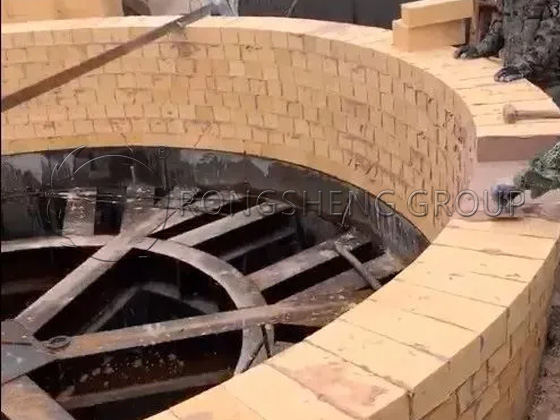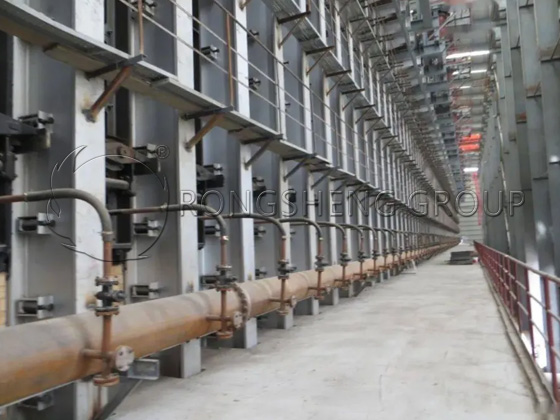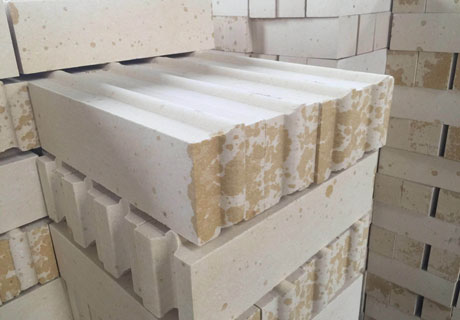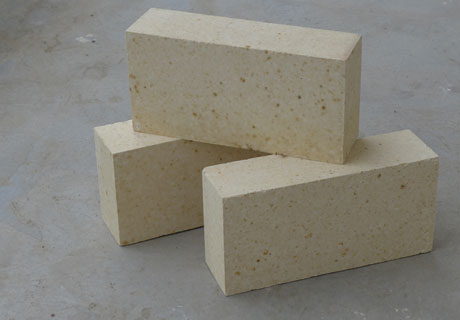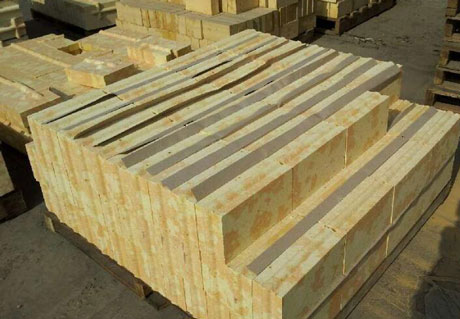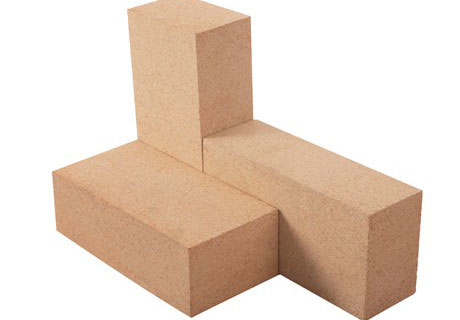Silicon Brick belongs to acid refractory materials with properties of good acid erosion resistance, good thermal conductivity and high refractoriness under load. Silicon Bricks can service in the high temperature of over 1620℃. Its thermal conductivity can rise with the rising of service temperature. There is no linear after contraction. Silicon Brick’s bulk can rise with the temperature rising in the process of baking oven. Silicon bricks are the better refractory products for coke oven. Silicon Bricks can be used to build the combustor, chute and regenerative chamber of coke oven.

Description for Silicon Brick
In the process of baking oven, the maximum expand of silicon bricks happen between 100~300℃. The expansion quantity under the 300℃ account for 70%~75% of total expansion quantity. Because there are four crystal form transition points of 117℃, 163℃, 180~270℃ and 573℃ for SiO2. Of which, the bulk expand caused by cristobalite between 180~270℃ is maximum.
The true density decides the thermal conductivity of silicon bricks. And it is the one of most important mark for deciding silicon bricks’ quartz transform. Its true density is lower, its lime transform is more complete. The linear after-expansion is lower in the process of baking oven.
In the silicon bricks, the true density of quartz crystal is lowest, linear expansivity is low, its thermal stability is better than quartz, high slag erosion resistance, good thermal conductivity, high temperature refractoriness under load, better bulk stability.

Features and Properties of Silicon Bricks
- Chemical Component and Mineral Composition
The chemical component is different with the difference of raw materials. Generally the SiO2 content is 93·98%, al2o3+fe2o3+cao is 2.0~0.7%. The mineral composition of common silicon bricks is mainly made of tridymite, which account for 30~70%. Silicon bricks with high silica high density are mainly made of cristobalite which account for 20~80%. The residual quartz and amorphous state quartz all account for a small amount. - Refractoriness and Refractoriness Under Load
The refractoriness of Silicon Bricks depends on the SiO2 and impurities content and property. There is more SiO2 content, the impurities are lower, and the refractoriness is more close to the melting point of SiO2. Otherwise, the refractoriness is lower. The refractoriness of Silicon Bricks is generally between 1690~1730℃.
The refractoriness under load of silicon bricks is higher for 1650℃, which is main caused by the principle crystal made for silicon bricks has dimorphic tridymite forming net structure and base as glass phase with higher viscosity. The refractoriness under load of silicon bricks is similar with its refractoriness, which is a outstanding feature of silicon bricks. - Slag Resistance
Silicon Bricks are acid refractory materials, which has strong ability to resist the erosion of acid or weak acid furnace slag and corrosive gas. - High Temperature Volume Stability
In the heating process, except for certain expansion, silicon bricks also happen to crystal phase transition and accompanies volume expansion. If there is unchanged residual quartz that will continue change to be tridymite or cristobalite and will generate greater volume stability.
Application of Silicon Brick
Silicon bricks are mainly used as furnace lining materials to build glass melting furnace and coke oven according to their properties. In the heating process, slowly rising temperature for avoiding the bricks damage from over expansion.
If you are looking for the Silicon Brick for Sale, and want to get the Silicon Brick price. Please Contact Us Rongsheng Refractory Manufacturer.

